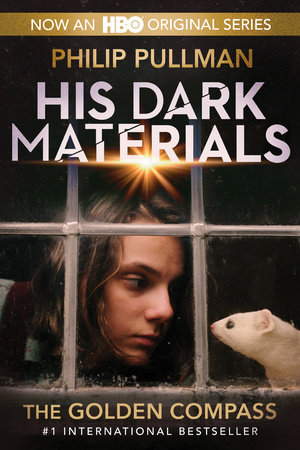His Dark Materials: The Golden Compass (HBO Tie-In Edition) Reader’s Guide
By Philip Pullman


1. The author tells us that The Golden Compass takes place "in a universe like ours, but different in many ways." How do you think Lyra’s universe relates to ours?
2. What is a dæmon? How do they make humans different from other creatures? Why do you think servants’ dæmons are always dogs? What sort of dæmons might your friends, relatives, classmates, or coworkers have? Describe your own dæmon.
3. The world of The Golden Compass is ruled by the Church. However, the nature of its power is unclear. What power do you think the Church holds over its people?
4. On pages 89-90, the General Oblation Board is explained in reference to the historical sacrifice of children to cloistered life. "Oblation" refers to the act of making a religious offering. What offering does the General Oblation Board make and to whom?
5. Human knowledge and experience are made physical in Dust. What other psychological, intellectual, or spiritual activities does the author physicalize?
6. What is the relationship between "severing" and death? Is the author using this fantasy to explore the notion of psychic or moral death?
7. Why do you think the author stresses that Lyra is not an imaginative child? Why would "imagination" be dangerous to her? How would it affect her understanding of the alethiometer? Is Lyra a truth-seeker? Who is Lyra Belacqua and/or what does she symbolize?
8. In what ways is gender a significant or stratifying element in the novel? Why do you think all witches are female? Why are dæmons usually the opposite gender of their human counterparts? Is the fact that Lyra is a girl-child relevant to the themes of the story?
9. Alongside human society in The Golden Compass, there exists the community of the armored bears, who have their own hierarchical structure and moral code. In one way Svalbard seems little more than an interesting foil to the human condition, yet the bear kingdom is also a final destination, the site of the story’s climactic conclusion. What do you think is the author’s purpose in inventing – and exploring – the world of the armored bear?
10. The author has filled this novel with binary imagery: person-dæmon; mother-father; Iorek-Iofur; Lyra’s universe-the universe in the Aurora. What other binarisms can you find in the structure, landscape imagery, and vocabulary of this fantasy? How do these dualistic elements affect the novel’s larger themes?
11. Discuss Lyra’s "betrayal" of Roger in relation to other betrayals that occur in the novel. Has reading The Golden Compass altered your understanding of the act of betrayal?
12. Are Lord Asriel and Mrs. Coulter in collusion or are they fighting each other? How and in what way?
13. Curiously absent from The Golden Compass are four words that are prevalent in most fantasy adventures: right, wrong, good, and evil. Can these terms be applied to this story? How and why, or why not?
14. On the last page of the book, Lyra and Pantalaimon recognize that they are still "one being; both of us are one." The expression resonates with a phrase from marriage ceremonies. Contrast this moment in the story with the preceding interplay between Lyra’s parents.
15. The Golden Compass is the first book in the trilogy His Dark Materials, which gets its name from a passage in John Milton’s Paradise Lost, quoted at the beginning of the novel. Philip Pullman has said, "Milton’s angels are not seriously meant to be believed – beings with wings and halos and white robes. They are psychological qualities, conceived and pictured as personalities. With them, Milton tells one of the central tales of our world: the story of the temptation and fall of humankind." Discuss the passage from Paradise Lost and this statement from the author in relation to The Golden Compass.
16. When Lyra walks "into the sky" at the end of Book One, we can presume that she is walking into the world of Book Two of His Dark Materials – "the universe that we know." What do you think will happen to her and Pantalaimon when they cross the bridge?
Just for joining you’ll get personalized recommendations on your dashboard daily and features only for members.
Find Out More Join Now Sign In